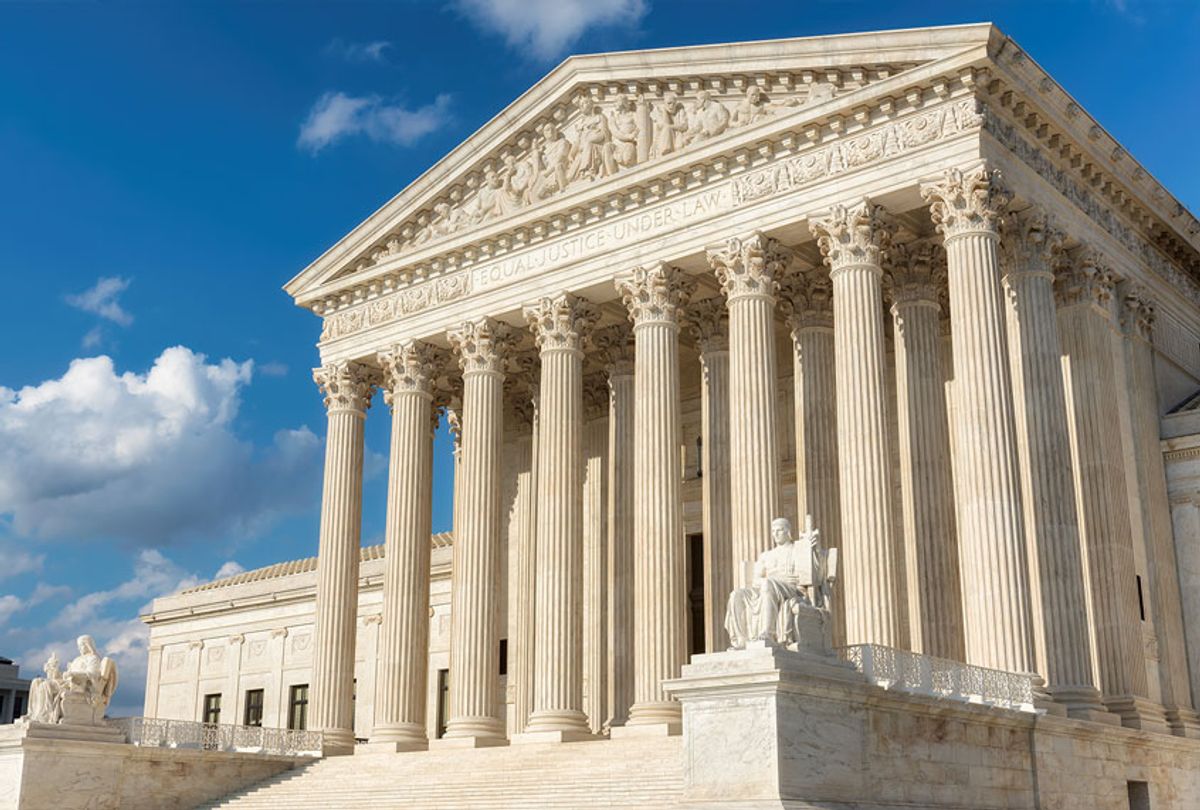The June 15 Supreme Court ruling applying Title VII of 1964 Civil Rights Act to the LGBTQ community, and particularly Justice Neil Gorsuch's uncharacteristically expansive reading of the law, could well have a profound impact on the November elections. Although the decision has nothing to do with voting rights, it perhaps indicates a softening of the Court's iron-fist conservatism in the face of a rapidly shifting social and political landscape.
Voting rights cases will likely occupy a prominent place on the Court's calendar in the coming months. Events such as the recent primary election in Georgia, in which polling stations in African American neighborhoods experienced the sort of long lines and technical glitches generally associated with a new iPhone rollout, will doubtless spawn court tests. In Florida and Iowa, two states very much in play in November, Republican state legislatures are desperately attempting to add onerous financial requirements to prevent former felons from voting. Other states, such as Texas and Wisconsin, have initiated voter identification requirements widely recognized as attempts to keep African Americans from the polls.
Voter suppression measures by a Republican Party that rules as a minority are, in fact, merely a recognition that the structural advantages that have allowed them to remain in power, such as gerrymandering and the small-state bias of the Electoral College, will no longer be sufficient. The nation seems, suddenly and decisively, to have moved too far from their ideology. The only thing left is to cheat, and, in the United States, the most effective and time-honored way to cheat is to suppress the African American vote.
For most of this nation's history, white minority rule has been made possible through the systematic suppression or denial of the African American vote. Slavery granted Southern states a three-fifths apportionment bonus, giving Southern states outsized representation in the House of Representatives and in the Electoral College.
The Jim Crow era was even kinder to the South. Beginning with Mississippi in 1890, every state in the old Confederacy, "redeemed" by white supremacists through terror and fraud, took to rewriting its state constitution to as, Mississippi's James K. Vardaman later bragged, "eliminate the n***er from politics." Although race was never specifically mentioned, African Americans were prevented from voting through contrivances such as literacy tests, property owning requirements, poll taxes and grandfather clauses — all now forbidden — but they were counted for apportionment, thereby granting Southern whites the same advantages in Congress and the Electoral College they had enjoyed before emancipation.
When these new Southern constitutions were tested in the Supreme Court, each was upheld. In Williams v. Mississippi, for example, Justice Joseph McKenna wrote, "The Constitution of Mississippi and its statutes do not on their face discriminate between the races, and it has not been shown that their actual administration was evil; only that evil was possible under them." But perhaps the most damning example was in Giles v. Harris, when revered Justice Oliver Wendell Holmes upheld the 1901 Alabama constitution in a ruling so contrived that constitutional scholar Richard Pildes called it "the one key moment, one decisive turning point … in the bleak and unfamiliar saga … of the history of anti-democracy in the United States."
Although in 1965 the Voting Rights Act helped limit, but did not end, discriminatory laws against African-American voting, in 2015, in Shelby County v. Holder, the court in a 5-4 decision struck down the most effective provisions of that law as unconstitutional. States were once again allowed to enact legislation that, while appearing race-neutral, was anything but.
Until now, the Supreme Court's five conservative justices, devoted, they insist, to the Constitution, have refused to recognize, or pretended not to see, discriminatory policies for what they are. In Trump v. Hawaii, for example, the five conservatives pretended that an order jiggled by President Trump to look as if it was not aimed at denying Muslims entry into the United States was valid, despite the fact that Trump had repeatedly and publicly announced that was his intention.
But the political climate has changed, and, despite the insistence that they only follow the "rule of law," the court, as the recent LGBTQ ruling demonstrates, is not impervious to political pressure. When Thomas Jefferson was elected president, he made no secret of his desire to remove his arch-nemesis and cousin Chief Justice John Marshall and replace him with Spencer Roane, thus forcing Marshall's constitutional end run in Marbury v. Madison. In the wake of the Civil War, when the constitutionality of the Reconstruction program was being tested in the courts, radical Republican congressmen took to sitting in when cases were heard to ensure that some questionable laws were not struck down. And most famously, after Franklin Roosevelt's disastrous and failed attempt to pack the Court in order to end the judgments invalidating his New Deal programs, the Court's decisions began to go his way.
This group of conservative justices likely feel themselves similarly under siege, torn between an ideology that enables racism and a nation that seems to have suddenly turned against it. It is vital, therefore, that the Court's role in enabling Jim Crow be kept in the forefront and public pressure on the justices be maintained. For this election, if the justices abdicate their responsibility to the Constitution and uphold transparently racist moves to suppress the vote, it could mark the end of the American experiment.
James Madison was leery of the "tyranny of the majority" as destructive to democracy. But the tyranny of the minority is no democracy at all.



Shares